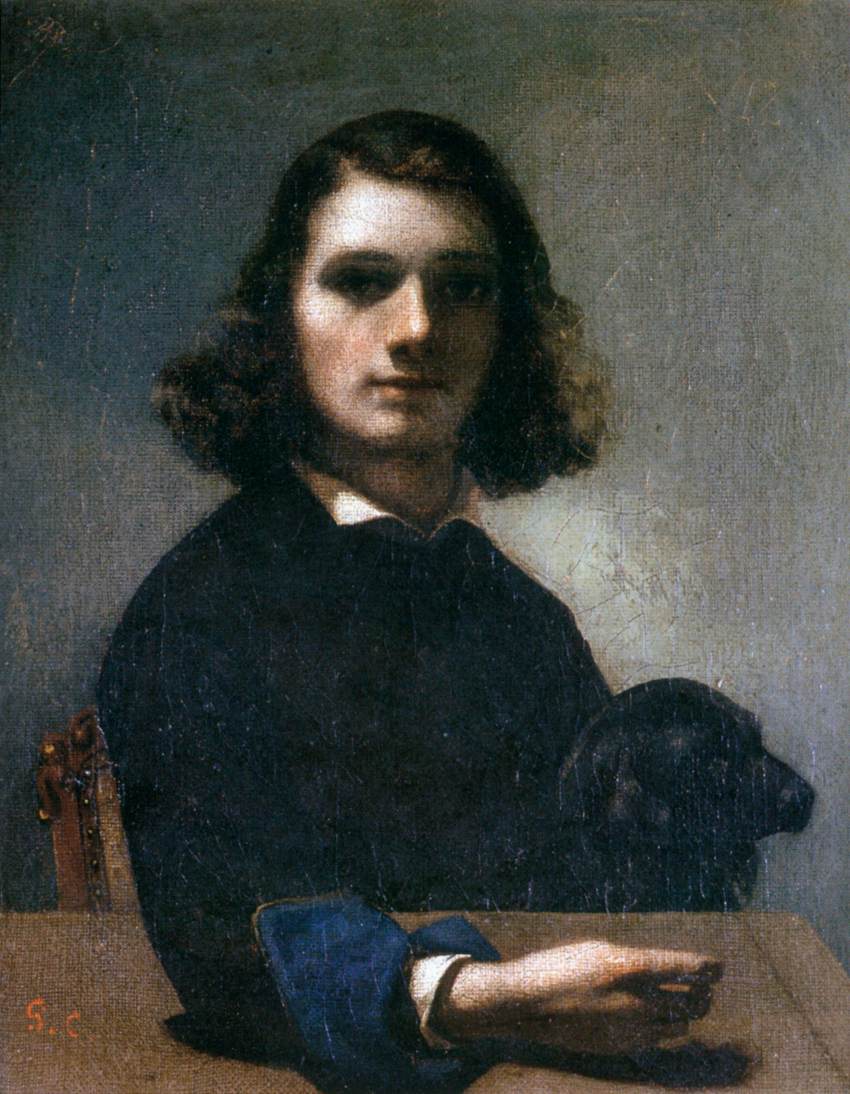Description
The painting Self-Portrait (Courbet with Black Dog) by the French artist Gustave Courbet is a masterpiece of 19th century realism. The work, measuring just 27 x 23 cm, is one of Courbet's most famous self-portraits, and is known for its composition and use of colour.
The painting shows the artist standing with one hand on his hip and the other holding a palette and brush. At his side is a black dog, which is believed to have been his pet. Courbet is presented in a casual outfit, with a hunting jacket and a white shirt open at the neck. The background of the painting is a mountainous landscape, stretching towards the horizon.
The composition of the painting is interesting, as Courbet presents it in a very direct and unadorned manner. The pose is steady and confident, suggesting the artist's confidence in himself and his work. The figure of the dog, which is at Courbet's hip height, suggests an emotional connection between the artist and his pet.
The use of color in the painting is notable, as Courbet uses a limited palette of earthy tones and grays. The artist uses color to create a sense of depth and volume, and to emphasize the figure of the dog in the foreground.
The history of the painting is interesting, as Courbet painted it in 1842, when he was only 23 years old. The work was one of the first paintings the artist presented at the Paris Salon, and was highly praised by critics and the general public.
In summary, Self-Portrait (Courbet with Black Dog) is a masterpiece of 19th-century realism, noted for its composition, use of color, and the emotional connection between the artist and his pet. The painting is one of Courbet's most famous self-portraits, and remains a work of great interest to art lovers around the world.

